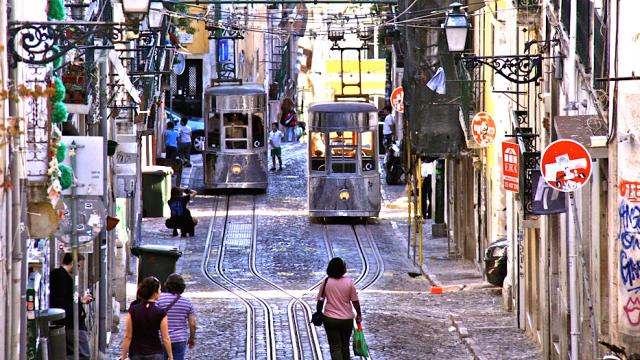
It is rare that a vote in the Portuguese national assembly causes outright celebration, but as a large crowd of supporters shouted “The people united will never be defeated!” outside parliament there was a sense that a country battered by four years of cuts and crisis could, as Socialist leader António Costa put it, finally “turn the page” on austerity.
Costa, the well-regarded former mayor of Lisbon and son of a communist poet from Goa, is poised to be prime minister after a broad leftist coalition including the Socialist party, Bloco de Esquerda (left bloc) and the Communist/Green alliance passed a vote of no confidence in the minority rightwing government – which two weeks ago was given legitimacy by the president despite lacking a working majority.
That moment, says professor and activist Pedro Ferraz de Abreu, was a defining one. “The president effectively said that any vote for a leftist party was a useless one, because he would not agree for them to govern. It was like a coup d’état.”
The feeling of resignation following the president’s rebuttal, however, has now turned to hope. The new Socialist-led alliance, the first of its kind since Portugal transitioned to democracy in 1974, promises an end to sweeping cuts and privatization in a country that has one of the highest levels of income inequality in the E.U., and where one in five people live below the poverty line.
Proposals such as keeping water a state asset, stopping public transport sell-offs and increasing the minimum wage – currently the lowest in western Europe – have been greeted with jubilation by many.
“An elderly woman outside parliament yesterday was shouting at Catarina Martins [leader of the left bloc]: ‘Don’t leave us! We need you!’ as she walked out of the building,” says student and Livre party member Margarida Bak Gordon.
“It made me want to cry. People outside were excited but also really nervous. Even though we knew there was going to be a vote of no confidence, I think we still found it hard to believe it was going to happen, considering the politics of the last 40 years.”
“The important thing is not necessarily the number of votes, but of solidarity, of dignity,” says Ferraz de Abreu, who was part of the movement that led to the 1974 revolution. “This is not the first time there is a leftist majority in parliament. But this time, people who went to vote, civic society as well as party activists and militants, all told their leaders that they had to get over their differences and get their act together.”
This is hardly a “Syriza” moment, considering that Costa has ruled out any negotiations on debt restructuring or a potential E.U. exit. But solidarity with austerity-hit Greece is evident in his new, unprecedented coalition of broad political stripes. “I think everyone on the left, not just in Portugal, is questioning how politics is managed in Europe now,” Bak Gordon says. “But, it doesn’t necessarily mean that we want out.”
There is a sense now that people feel supported by this new incoming administration, even as they await the real fiscal proposals to know for sure. “I don’t know if we will be better off under Costa,” says Luis Gomes, who has run his family cafe in downtown Lisbon for 24 years. “They can promise a better life, but we have always been a poor country and we are in debt. But, at least now we can find some self-respect.”
3 WAYS TO SHOW YOUR SUPPORT
- Log in to post comments











